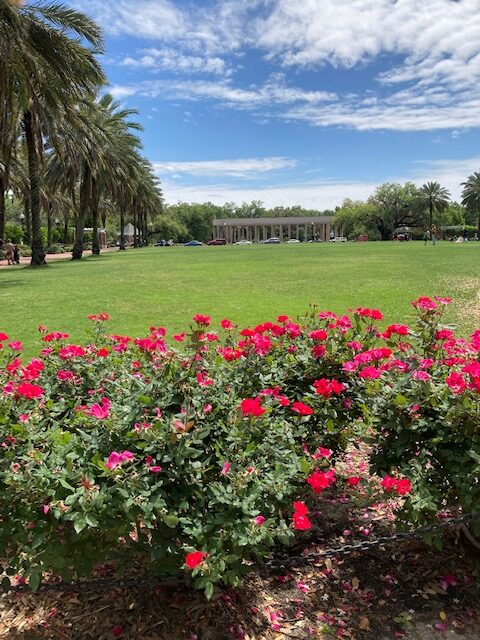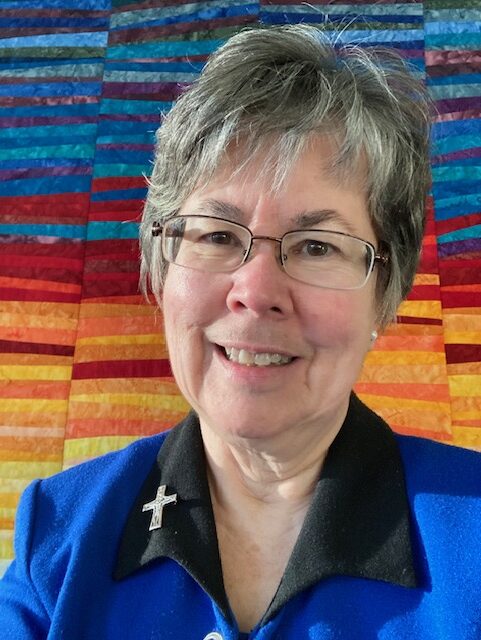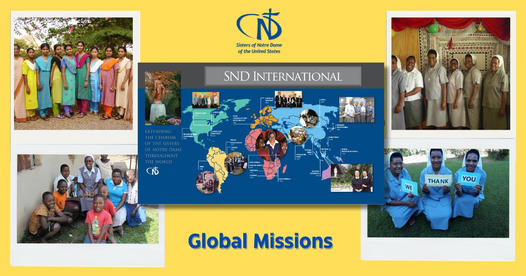
This weekend I will drive to West Virginia to speak at a parish about our Notre Dame missions. In preparing my talk, I learned more about our Sisters amazing work in foreign countries. Here is the bulk of my presentation . . .
We Notre Dames began missionary efforts in 1949 in Jamalpur, India. We now have missions in Tanzania, Kenya, Uganda, East Africa and Papua New Guinea. When I was girl in school, we raised money for the Notre Dame missions in India. Classes who raised the most received dolls dressed in saris. As a novice, I once sewed these saris and clothed the dolls.
When I entered the convent, newcomers were assigned a novice to show us the ropes and keep us out of trouble. She was called a guardian angel. My angel was Sister Mary Kamala (now Sr. Prema Devaraj) from India, who was studying at our college. At night in the dormitory I could hear her talking in her sleep in her language. A year later Sister Kamala was sent to Italy to become a doctor. She graduated summa cum laude. Back in India she ran a clinic and promotes health projects like one called “Let the Girl Child Live.” She was probably instrumental in establishing our home for girls in distress. Some children in the home were exploited by child labor, sexual abuse, child marriage, and trafficking.
In 1992 our Indian Sisters began their own mission in Tanzania, Africa. We American Sisters consider ourselves its grandmothers. Then in 1995, American Notre Dames began a mission in Uganda. Now there are 84 African Sisters of Notre Dame and half of them are in college, preparing for ministry. 36 other African women are novices or postulants in formation.
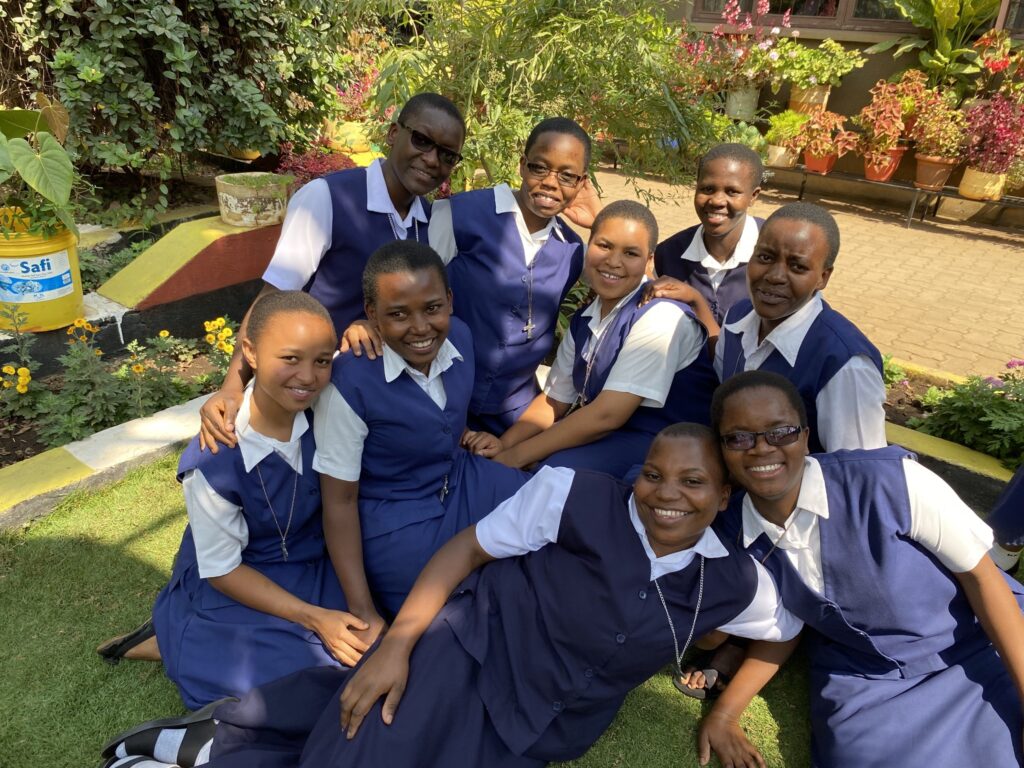
In Papua New Guinea, more than 7,000 young women have graduated from our Notre Dame Secondary School. The Sisters also develop Christian leadership in parishes. Most of the Papua New Guinean Sisters have become teachers.
Pope Francis reminds us that all of us are called by baptism to be “missionary disciples.” That means we are to carry out Jesus’ command, “Go out to all the world and tell the Good News.”
In Sunday’s Gospel, the man hiring is like Jesus, who has enough work to keep all of us busy. Jesus said, “The harvest is great but the laborers are few.” You might be puzzled that in the parable although some men were hired at the last hour and labored just a little while, all the workers received the same pay. Doesn’t seem fair. The point is that God is so generous, so loving that he rewards all who share in his work.
You participate in the salvation of the world directly by being Jesus for everyone in your circle of influence. But indirectly by supporting missionaries in foreign lands. What will God pay you for being a missionary disciple? Nothing less than eternal life.
So what do missionary Sisters of Notre Dame do? Here are three examples:
They accompany people in POVERTY. Like Jesus, they reach out to the most needy. Our Sisters live simple lives among the people, helping them any way they can. Indian Sr. Sudha is a lawyer who lived for over 20 years in a mud hut among the lowest caste people in India. They are called the Musahar (which means rat-eaters). Sister helps them claim their rights and stand up against injustices. She has helped more than 2,000 girls to graduate from high school or skills training centers and coordinates more than 1000 self-help groups for women. In Tanzania the Sisters acquired sewing machines and looms so women can make and sell clothing and be self-employed. In Uganda where the urban poor starve, Sisters turned their swamp ground into three fish ponds to provide food.
Second, our missionaries work to reduce ILLITERACY. In Tanzania Sister Rashmi began a school for Maasai tribal children, who had never been to school. Sister first gathered the children under a tree to teach them, and then with the help of generous donors, built a school, where young African SNDs teach. American school children raised money for a playground there. Through donations, the Sisters provide books and computers for our schools in Africa. Notre Dame Academy in Buseesa, Uganda, prepares women for college and pursuing careers in education, medicine, and social work. In Kenya a bishop turned over a struggling diocesan high school to the sisters, where students are from a semi-nomadic tribe.
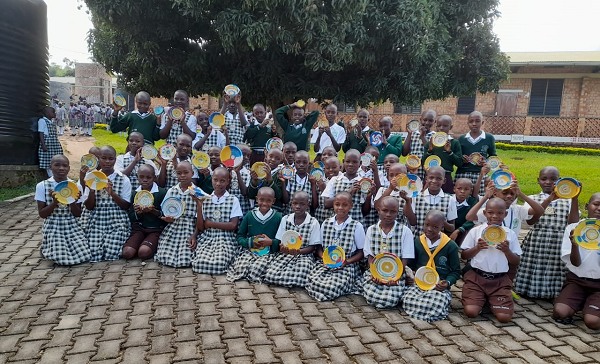
Third, our missionaries combat DISEASE. When Sister Mukti, a nurse, went to Africa, there were almost two million orphans in Tanzania. Sr. Mukti, gathered some—a number of them HIV positive. With the help of compassionate donors, Sr. Mukti built cottages where orphans experience the love of a house mother. Some of our American schools and individuals sponsor these girls, paying for their housing, education, and personal expenses. In Tanzania one focus is providing safe water. The Sisters install underground water tanks and water purification systems. This eliminates the burning of wood to purify water and so protects the environment.
How can we support the wonderful work of these missionaries? First be aware of needy situations. It’s easy to forget that most of the world doesn’t have our advantages and how grateful we should be.
Next, we can all be missionaries through prayer. In this age of war, violence, and natural disasters, you might “pray the news.” As you learn about suffering people, lift them up to God in prayer and ask God to support them. Pray for missionaries and know that they pray for us too.
Also we can share. Even a modest gift can make a difference. $10.00 provides a month’s worth of rice for a family in India. $150 a year educates a child. $350 a year provides housing, food, clothing, tuition, and school supplies for an orphan. Consider sponsoring the education of a Sister in ministry or a woman preparing to become a Sister of Notre Dame. God will bless a hundredfold whatever gift you offer.
• What do you know about the Notre Dame missions?


